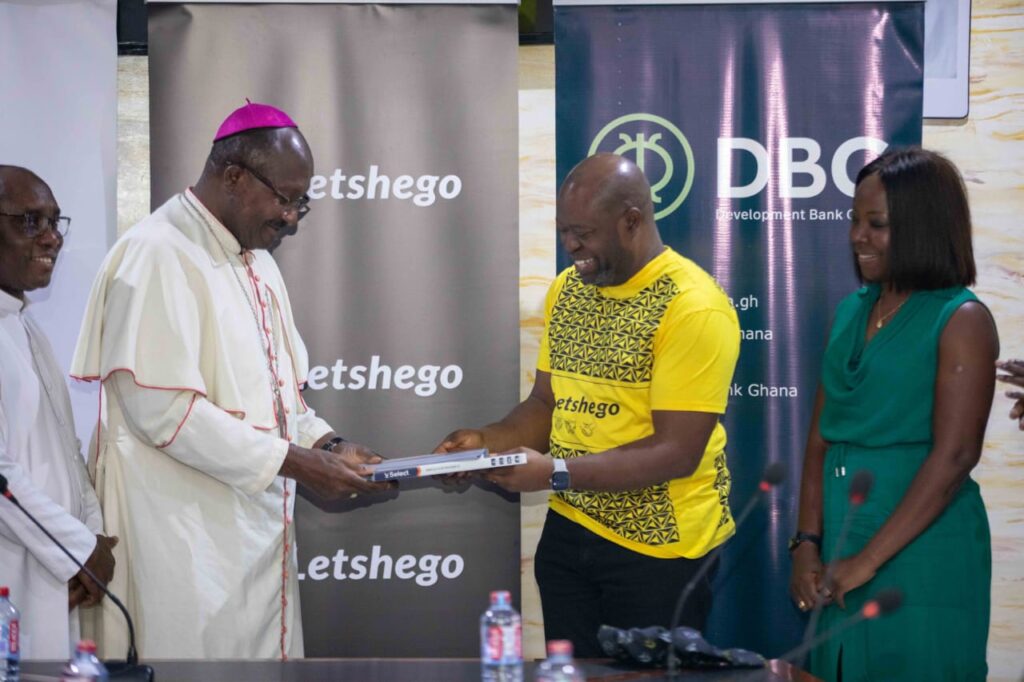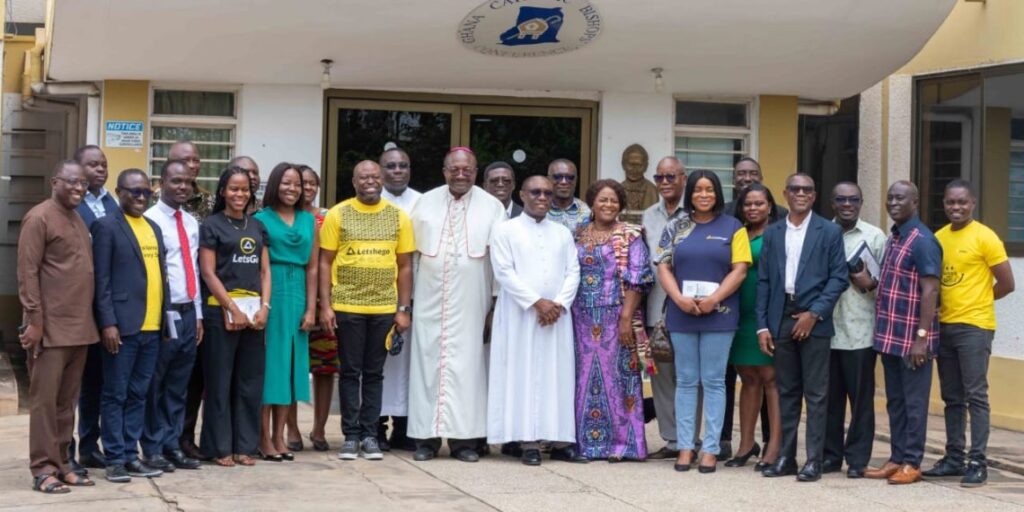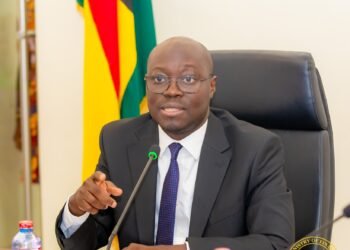Ghana’s transition toward a greener, more reliable public energy infrastructure took a significant leap forward as the Catholic Church, in partnership with Letshego Ghana Savings and Loans PLC and Lumen Energy, launched an ambitious solar energy project aimed at powering over 4,000 of its institutions nationwide.
Speaking at the official signing ceremony at the National Catholic Secretariat in Accra, Most Rev. Bishop Edoe Kumordzi, who chairs the Board of Lumen Energy and represented the Ghana Catholic Bishops’ Conference, described the collaboration as a moral and ecological imperative.
“[This] marks a defining moment in our shared mission to promote renewable energy and safeguard our planet for future generations.
“Through this partnership with Letshego, we are not only reducing our carbon footprint but also creating sustainable jobs and protecting creation as stewards of God’s earth.”
Most Rev. Bishop Edoe Kumordzi, Boardchair of Lumen Energy
He underscored that the Church’s leadership in renewable energy reflects its commitment to environmental stewardship, social justice, and economic empowerment.

At the heart of the rollout is a GHS200 million credit facility extended by Letshego Ghana to the Catholic Church, designed to finance solar installations for schools, hospitals, parishes, and administrative offices across the country.
The move comes amid mounting concerns over unreliable electricity supply and rising energy bills that have plagued Ghana’s public institutions, threatening both service delivery and economic stability.
The project is seen as one of Ghana’s largest private sector-led green energy efforts with a faith-based institution and is widely praised for its scale and potential socioeconomic impact.
The installations are expected to not only provide uninterrupted power to Catholic-run institutions but also significantly lower utility costs, enabling more funds to be redirected toward health care, education, and social welfare.
Sustainable Solar Power Drive

Letshego Ghana’s Chief Executive Officer, Nii Amankra Tetteh, highlighted the strong alignment between the company’s mission and the goals of the solar initiative.
He said that financing such a transformative project is a reflection of the company’s purpose-driven model, which prioritizes inclusive development. “At Letshego, everything we do is anchored on our purpose: improving lives,” he noted.
“We are not just financing solar systems, we are investing in a greener, more inclusive future.
“We are proud to stand with the Catholic Church on this bold journey and are committed to supporting every step forward.”
Nii Amankra Tetteh, Letshego Ghana’s Chief Executive Officer
The financing model also involves Development Bank Ghana (DBG), which has already disbursed GHS85 million toward the project.
Speaking on behalf of the bank, Ms. Anita Solomon, Head of SDI Lending (Wholesale Investment), said the initiative reflects DBG’s core mission of funding Ghana’s transformation through targeted investments in green finance and climate resilience.
“This GHS200 million solar project, of which GHS85 million has already been disbursed, is a shining example of what strategic partnerships can achieve.”
Ms. Anita Solomon, Head of SDI Lending (Wholesale Investment)

She described the initiative as a model of what strategic financing partnerships can achieve. She noted that DBG’s support reflects its mission to catalyze Ghana’s transformation through targeted green finance, adding that the project aligns with one of DBG’s central pillars, environmental sustainability.
The solar project is also viewed as a strategic contribution to Ghana’s obligations under the Paris Agreement, particularly in fulfilling its Nationally Determined Contributions (NDCs).
It supports the achievement of key UN Sustainable Development Goals (SDGs), including affordable clean energy, quality education, sustainable communities, and climate action.
Crucially, the project also supports Ghana’s global climate commitments. It is aligned with the country’s Nationally Determined Contributions under the Paris Agreement and contributes directly to several United Nations Sustainable Development Goals, including clean energy access, climate action, and quality education.
The move by the Catholic Church is particularly significant given the scale of its institutional footprint across Ghana.
With more than 4,000 facilities under its stewardship, the Church’s clean energy transition represents a sizable share of the country’s public service infrastructure.
Its ability to lead such a shift not only sets an example but also highlights the potential for faith-based organizations to influence policy, mobilize communities, and unlock green investment at scale.
As Ghana seeks to scale its renewable energy uptake and reduce dependency on imported fossil fuels, this landmark partnership between the Catholic Church, Letshego, Lumen Energy, and DBG is emerging as a pivotal force.
It demonstrates how faith-based institutions, private financiers, and development partners can coalesce to drive practical solutions to energy insecurity.
READ ALSO: IMF Urges BoG to Hold Tight on Policy Rate to Cement Disinflation Gains



















